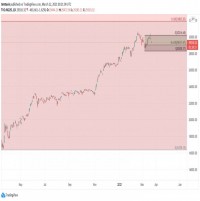|
Opalesque Industry Update - eFront, the financial software and solutions provider dedicated to Alternative Investments, has published its latest Quarterly Private Equity Performance report, showing that after a long period of benign market conditions and strong performance, LBO funds recorded a significant fall in returns during the first half of 2020.
Key findings After a decade of strong and improving performance, the onset of the coronavirus pandemic hit LBO returns sharply in the first half of 2020. Performance of active funds globally, measured by total value to paid-in (TVPI) slumped from a near-record of 1.45x in late 2019 to 1.36x in Q1 - returning to levels last seen in 2014. Risk, meanwhile, jumped sharply, reflecting the turbulent market conditions. Average time-to-liquidity rose slightly in Q2, following a drop in Q1, as managers adopted a wait-and-see approach and focused on managing existing portfolio companies through the crisis. The fall in performance pushed a number of vintage years below the long-term trendline, with funds raised in 2013, 2015 and 2016 now underperforming the average. Analysis
The first half of 2020 recorded a significant drop in active LBO funds' performance, as the effects of the restrictions caused by the coronavirus pandemic started to be felt. Private equity returns have now fallen back to 2014 levels, and at the same time, selection risk increased and appears to have stabilized. The first quarter witnessed a sharp drop, with TVPIs for active LBO funds falling from 1.45x in Q4 2019 to 1.36x . The decrease then continued in Q2 2020, albeit less sharply downward, as the impact of the Covid-19 pandemic on portfolio companies' value and activity started to materialize. To some extent, managers have included the evolution of listed stock prices in the fair value of investments. However, listed stock prices have subsequently recovered some lost ground, while net asset values have continued to deteriorate, signaling adjustments due to the impact of the virus on portfolio companies' operations. So far, this is a significant drop, but not a "crash". Not surprisingly, fund selection risk also increased in Q1 2020. Again, though, the increase is commensurate to the drop in multiples: it is significant, but not exceptional. Interestingly, the dispersion of funds has decreased in Q2, signaling that fund managers have converged in their NAV corrections. Some fund managers might have also dialed back adjustments made in Q1. The consequence is that, so far, 2020 has reverted to the ten-year average. Here again, the contrast comes from the prolonged period of low dispersion of fund managers' performance. As the economic consequences of the current health crisis unfold and hit specific sectors, while sparing others, selection risk could further increase in the second half of 2020. Since 2015, the first quarter of each year has seen a drop in time-to-liquidity, as deals were exited and new ones signed. The same trend continued in 2020, though at a less significant level. Exit and deal environments have proved to be challenging, and as a result the time-to-liquidity has decreased, but only moderately. However, as time-to-liquidity in 2019 was stable at around 2.75 years, even with a modest drop in Q1 2020, the current level of 2.7 years approaches the record low registered in 2018. Managers have thus reduced their deal activity to focus on the management of companies in their portfolios. Active LBO funds appear to have been in "wait and see" mode during the first semester of the year. Looking at vintage years, each year has recorded a decrease in multiple of invested capital during the first semester, including relatively mature ones such as 2011 and 2012, which are now aligned with the historical average. 2014 is still performing well above historical levels, despite adjustments, while 2013, 2015 and 2016 are now performing significantly below the average. Further examination shows that most of the downward adjustments were made in Q1 2020. Managers rapidly reflected the changes affecting financial markets and the macroeconomic environment, and adjusted quickly and sharply the value of their funds in Q1. The second quarter shows a stabilization of the performance of active funds, illustrating the stance of managers, who have prudently remained conservative in Q2.
|
Industry Updates
Coronavirus hits global LBO performance
Wednesday, October 07, 2020
|
|





 RSS
RSS








